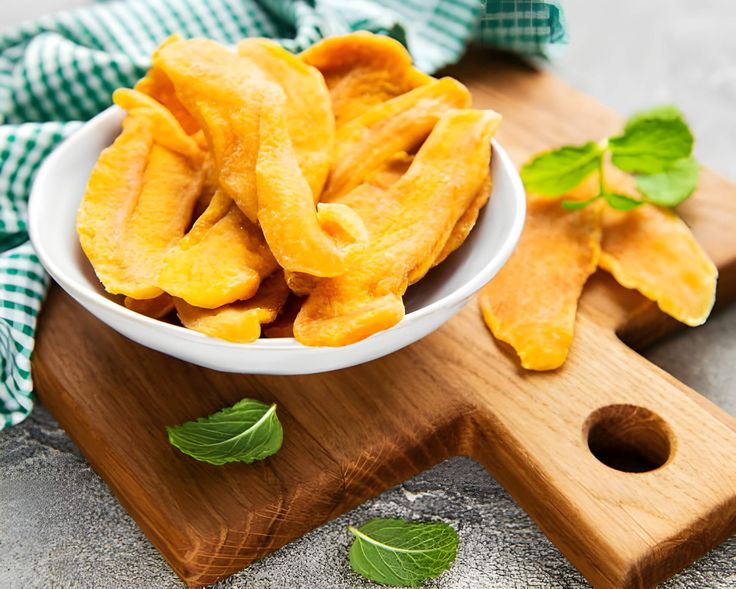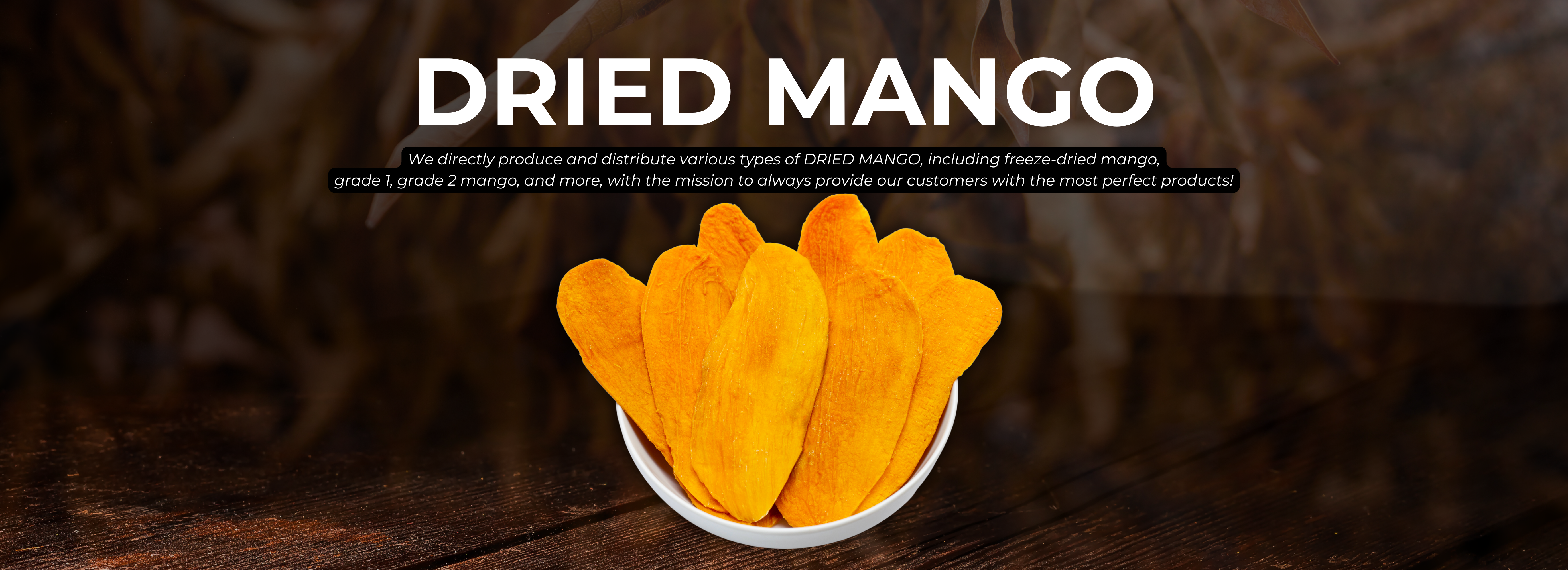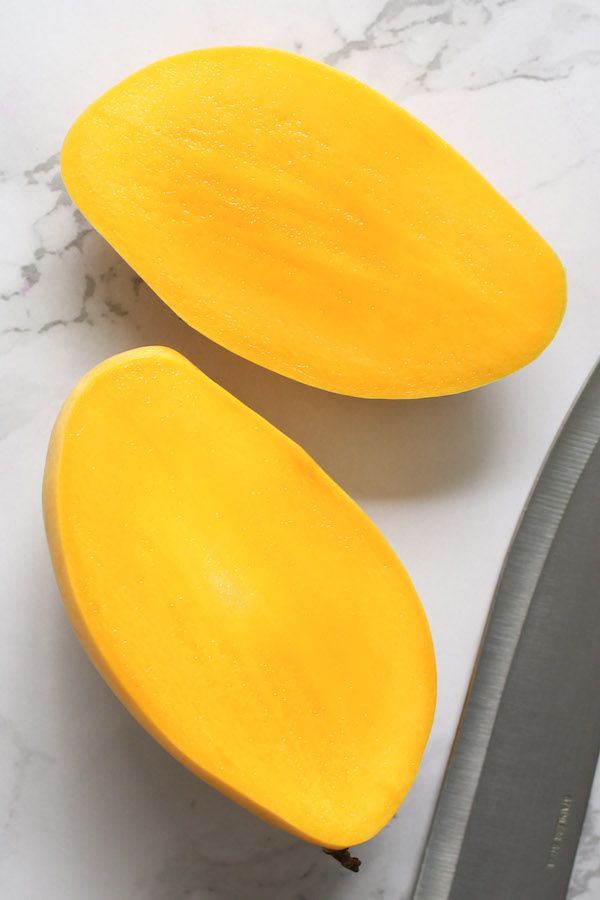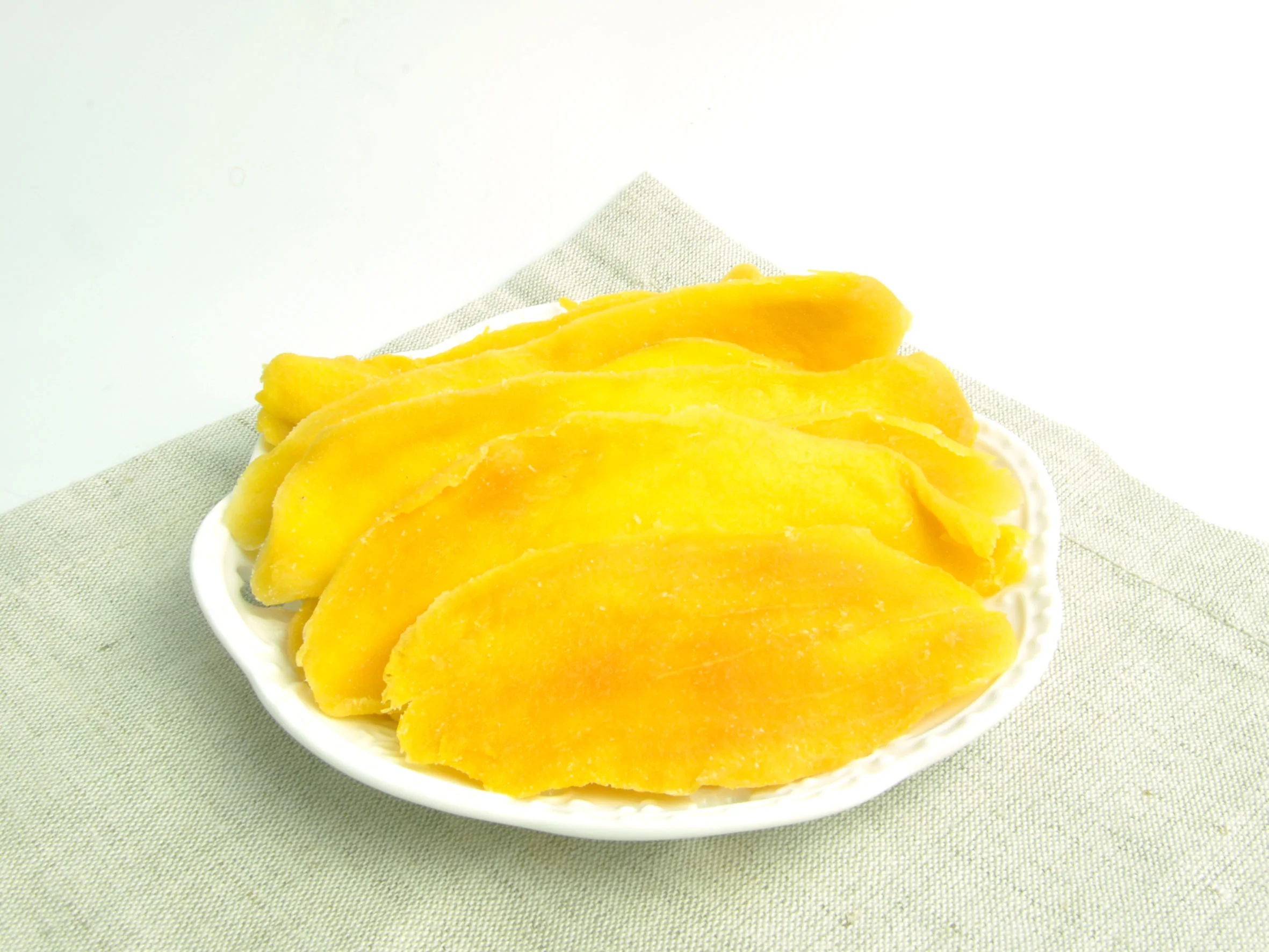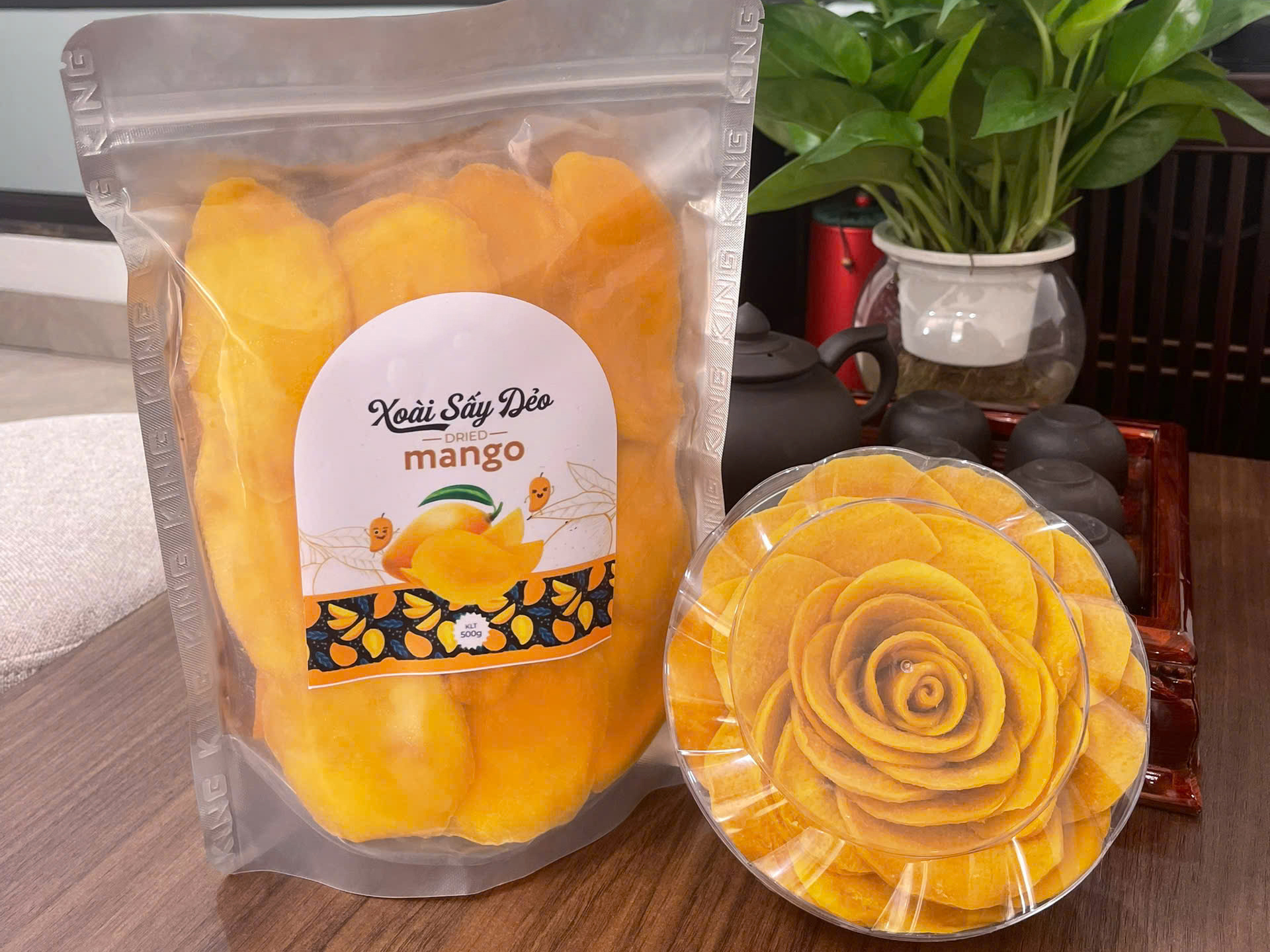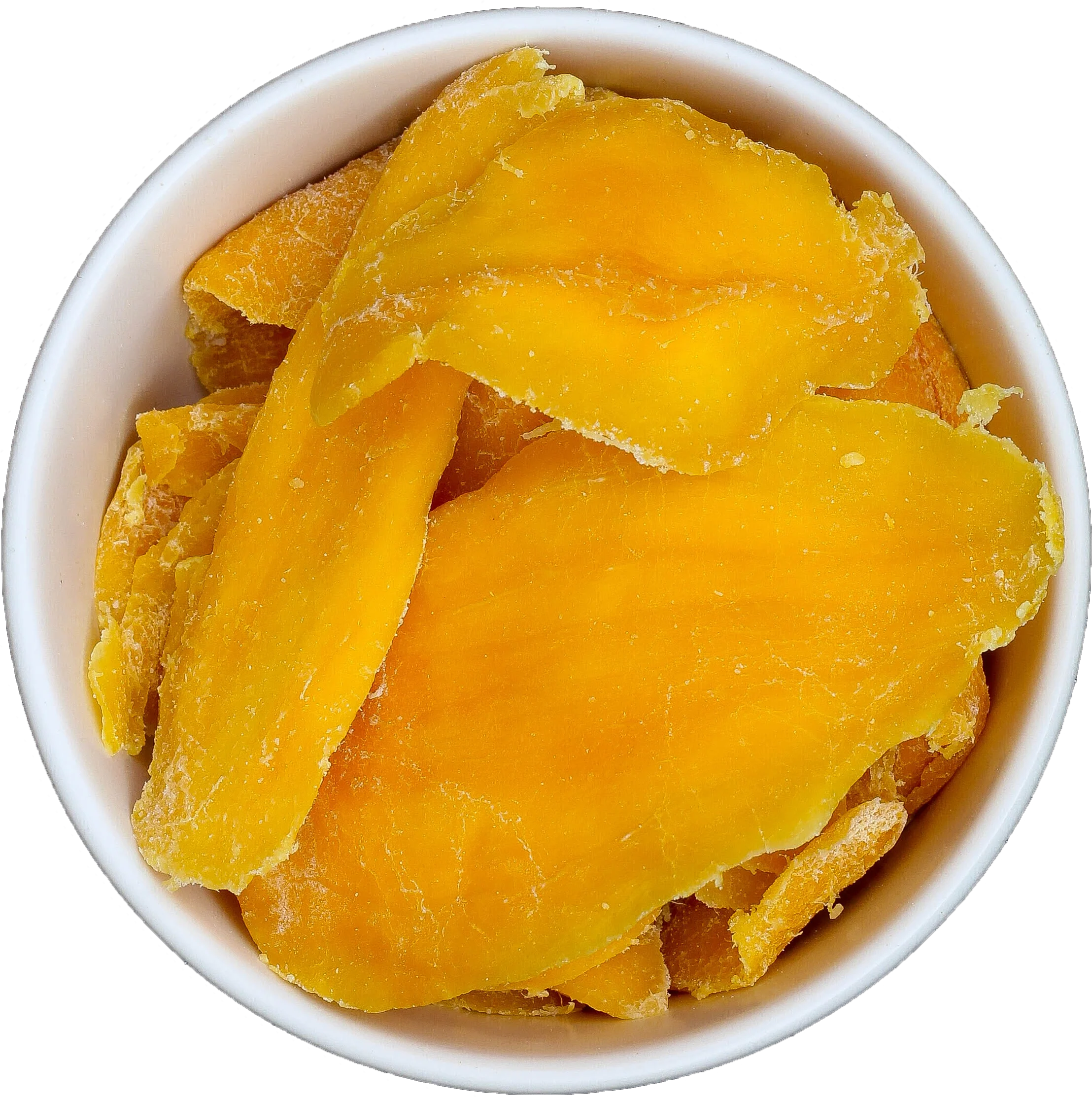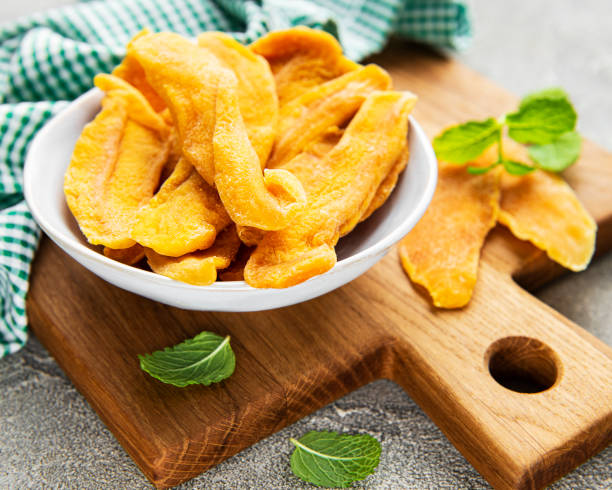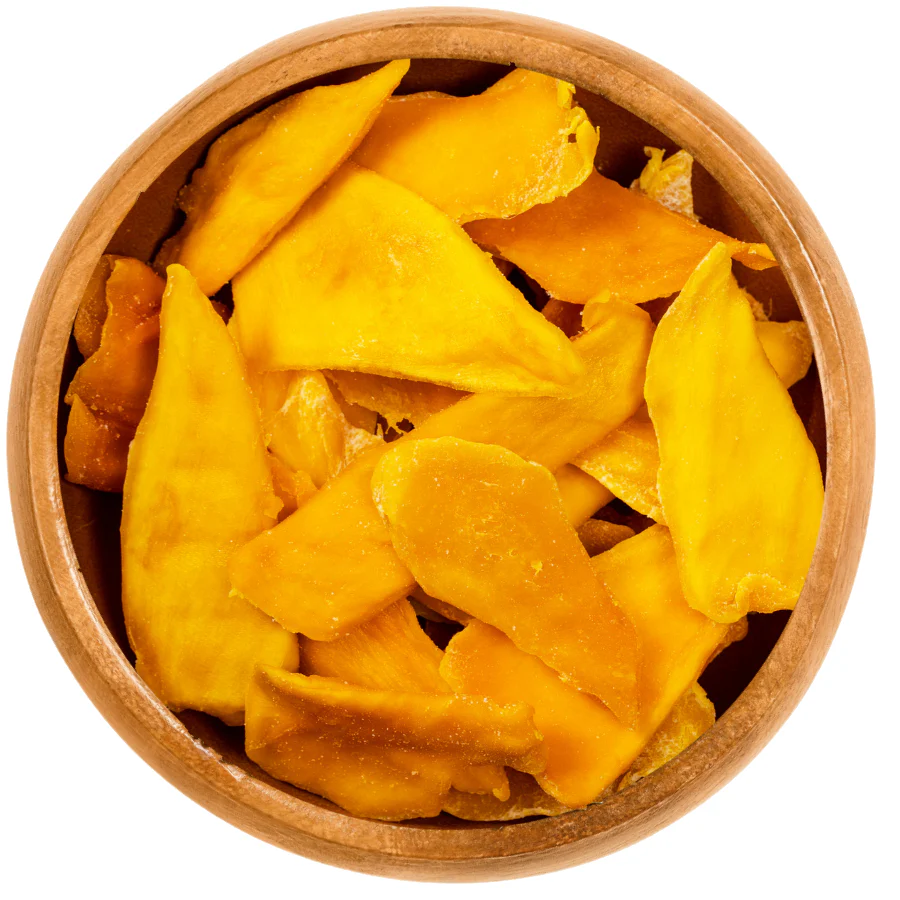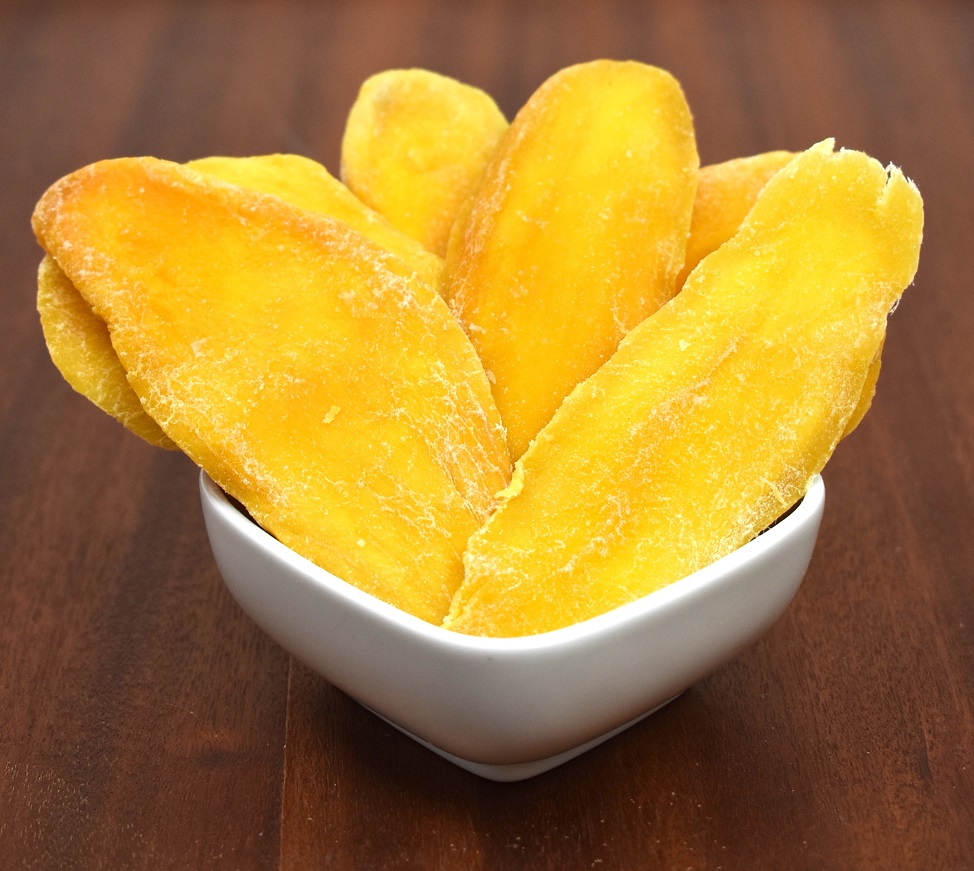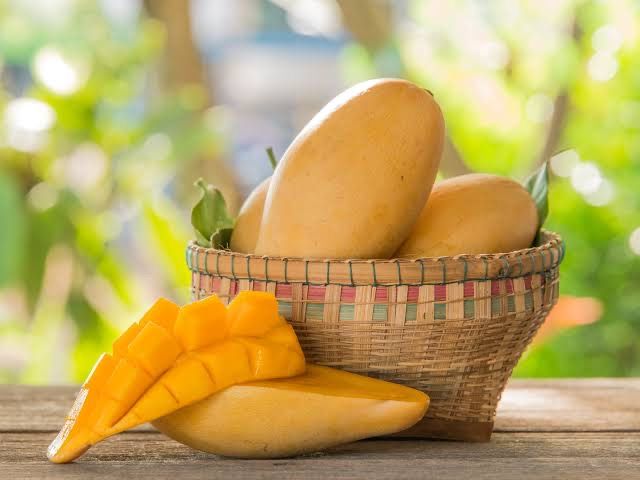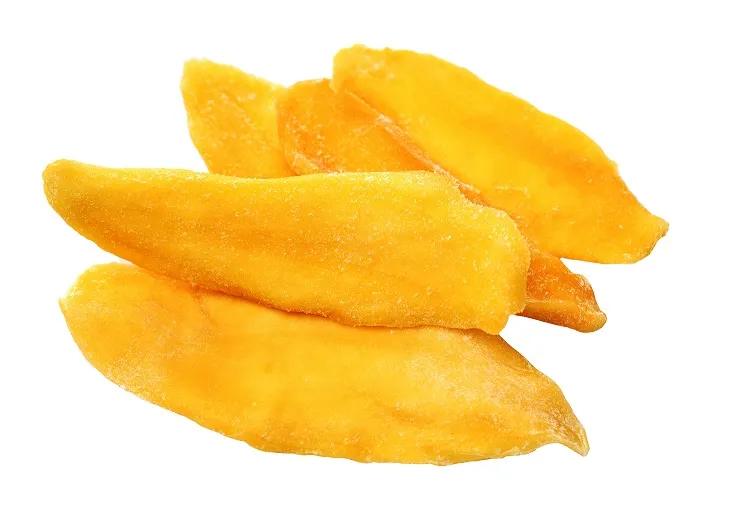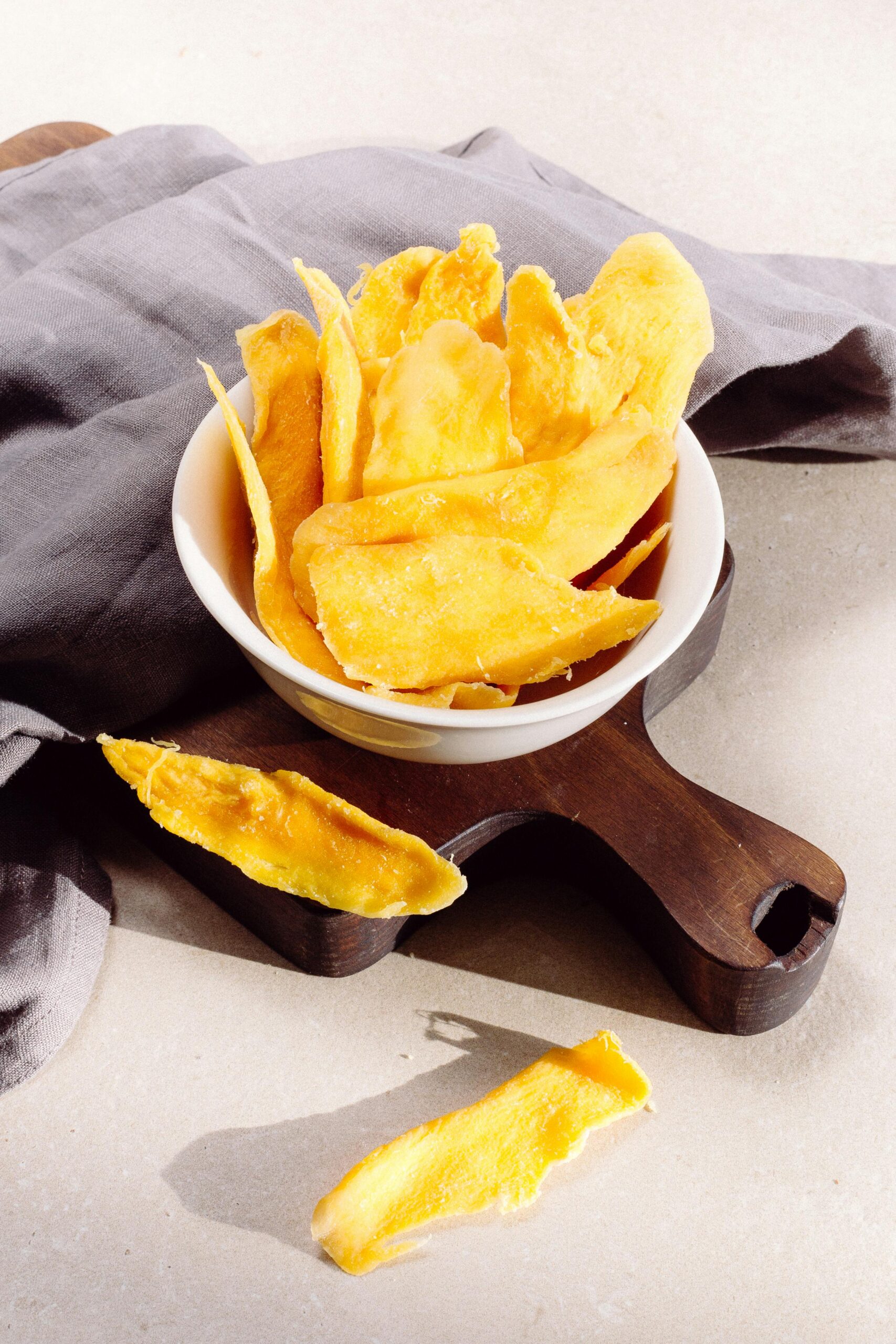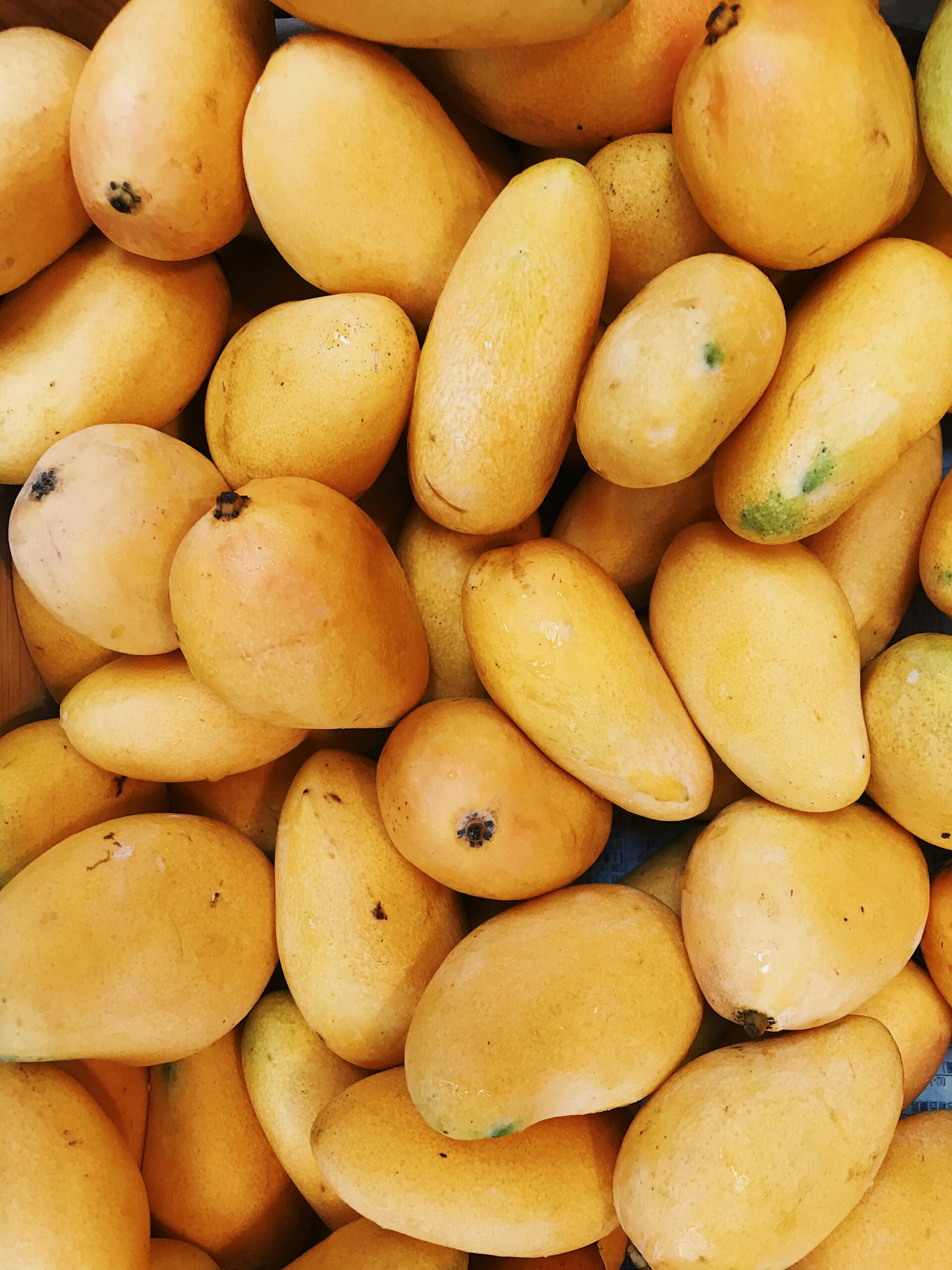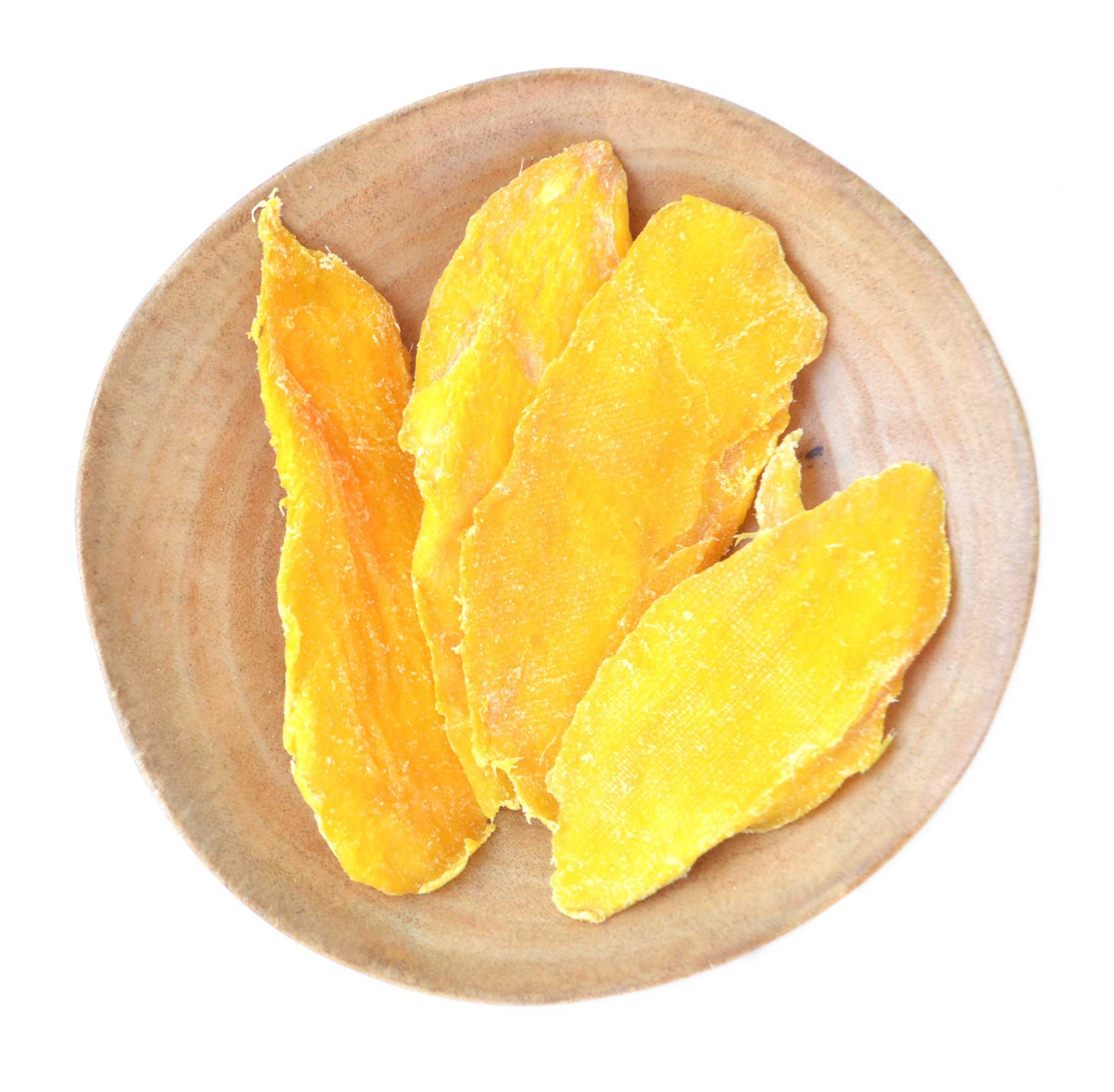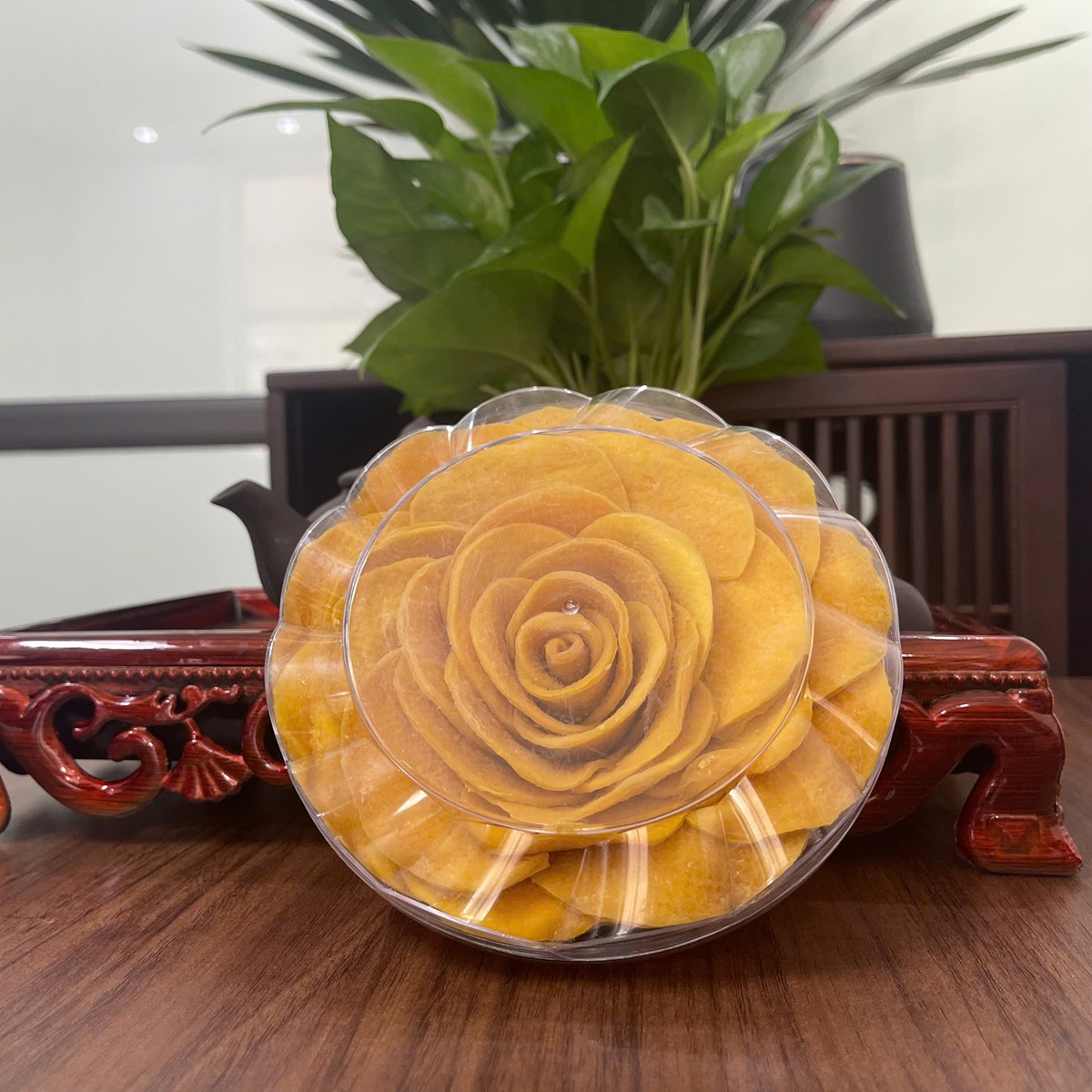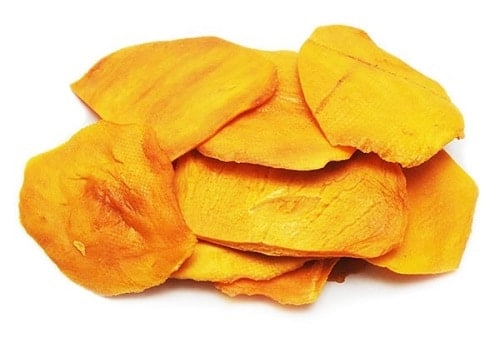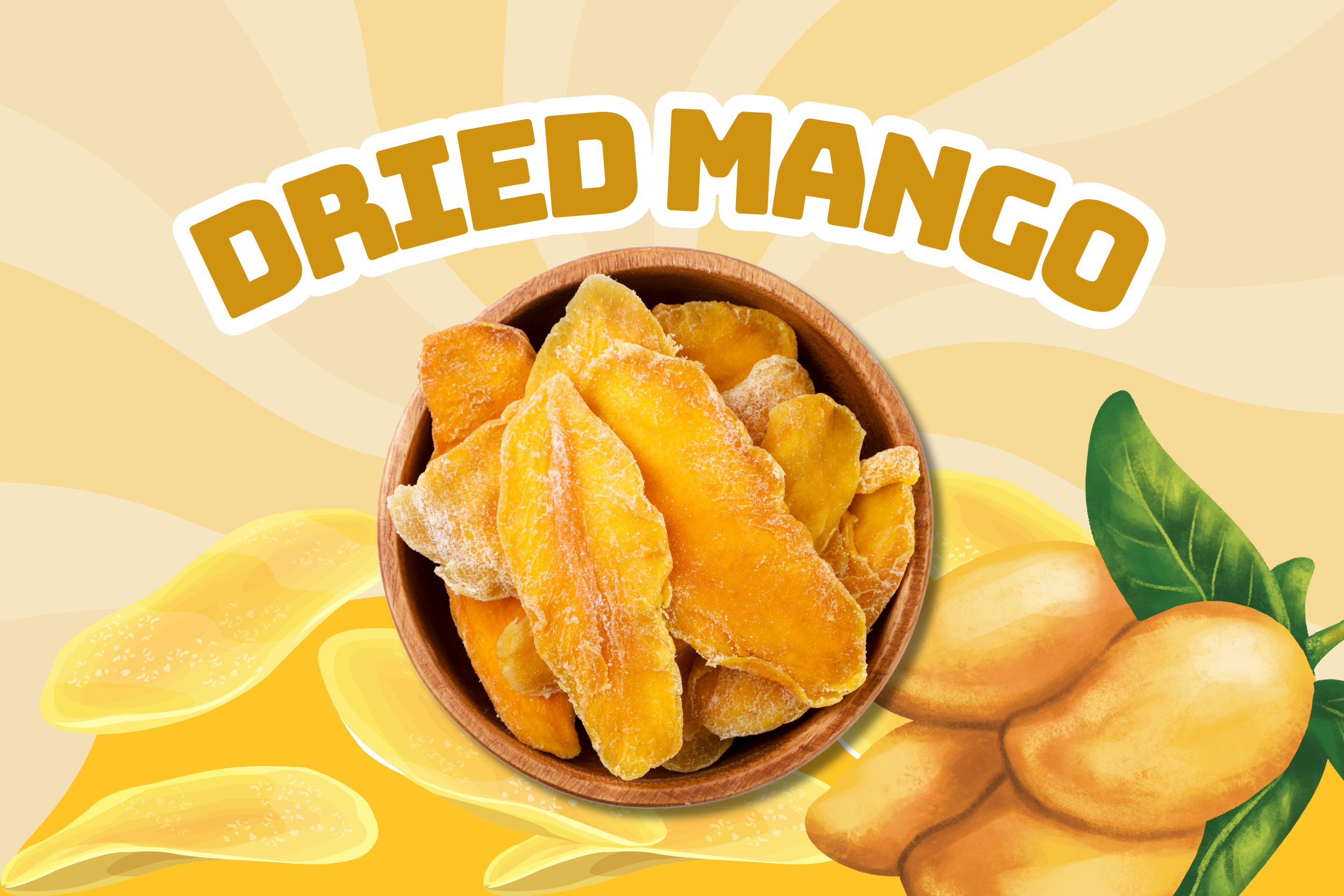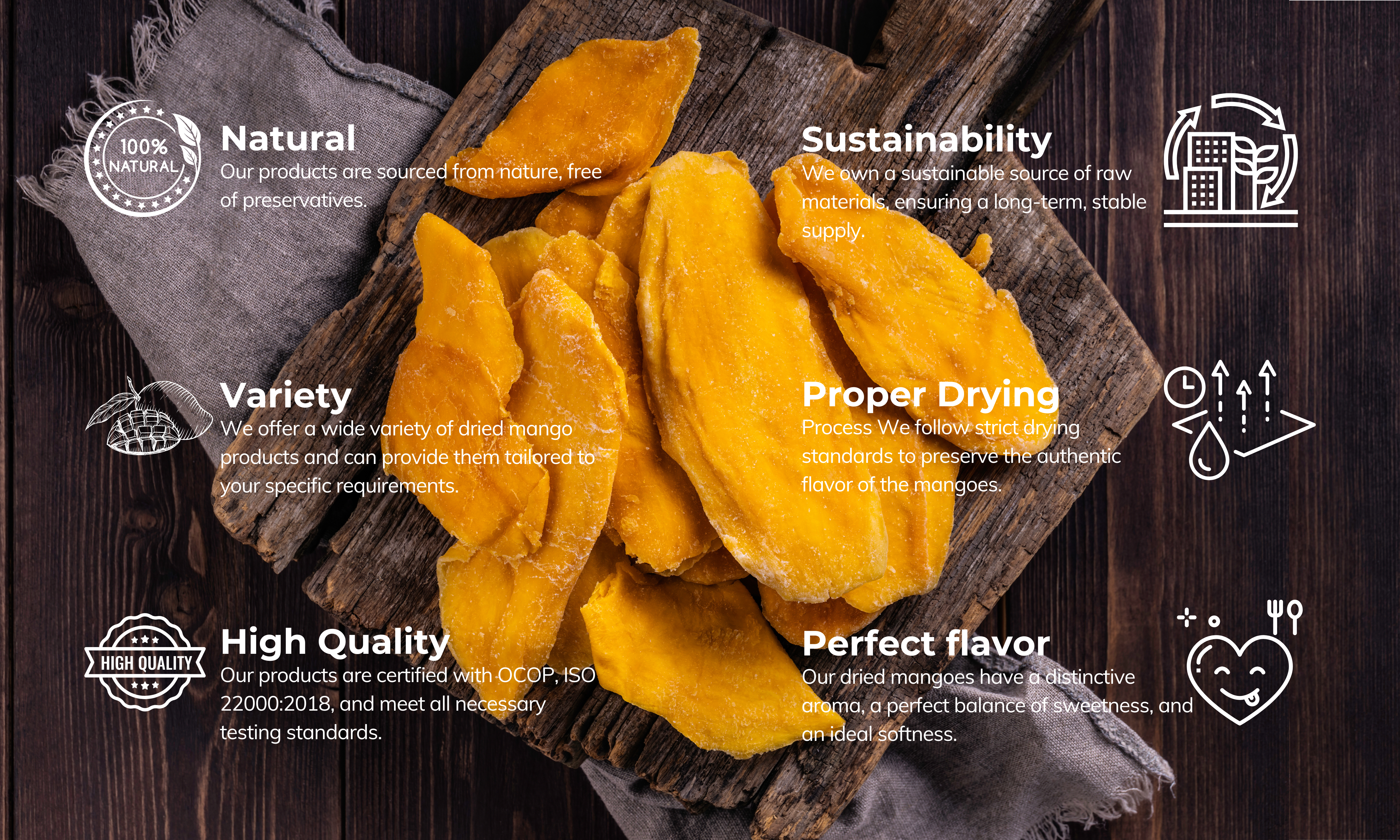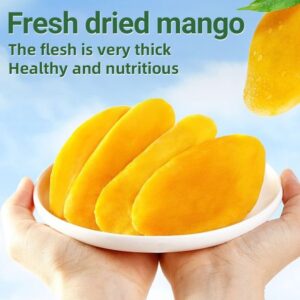Dried mango slices are a popular, clear candy snack that offers a handy and nutritious alternative to clean fruit. These chewy, flavorful slices of dried mango keep much of the colorful taste and health advantages of the fresh fruit, making them a fave for humans seeking out a portable snack. Whether you’re hiking, traveling, or definitely yearning for something sweet and healthy, dried mango slices are a perfect cross-to alternative.
In this text, we’ll discover the dietary benefits of dried mango slices, the way to contain them in your food plan, and things to hold in mind whilst deciding on this tasty snack.
What Are Dried Mango Slices?
Dried mango slices are made by dehydrating ripe mangoes to do away with the bulk in their water content. The drying process concentrates the fruit’s natural sugars and nutrients, resulting in a scrumptious, chewy snack that’s full of flavor. While dried mango slices may be enjoyed as a stand-by snack, they can also be delivered to various recipes like trail mixes, smoothies, and baked goods.
It’s vital to observe that dried mango slices can come in a whole lot of paperwork—some are unsweetened and truly dried, while others are sweetened or comprise preservatives like sulfur dioxide to keep their color. Therefore, whilst purchasing dried mango slices, it’s important to check the labels to make sure you are getting a version that meets your nutritional alternatives.
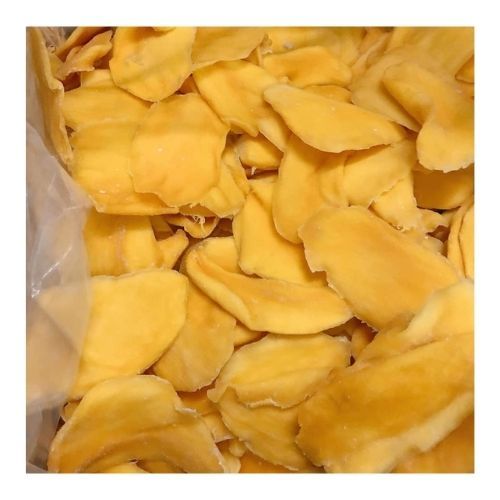
(Dried mango slices are made by dehydrating ripe mangoes to remove most of their water content)
Nutritional Benefits of Dried Mango Slices
Dried mango slices are packed with vitamins that can assist ordinary health. Here’s a breakdown of what you could assume nutritionally from a typical 1-ounce (28g) serving of unsweetened dried mango slices:
- Calories: 70-80 kcal
- Carbohydrates: 18-22 grams
- Sugar: 15-18 grams (herbal sugars)
- Fiber: 2-3 grams
- Protein: 1 gram
- Fat: zero grams
- Vitamin A: 25% of the Daily Value (DV)
- Vitamin C: 20% of the DV
- Potassium: a hundred and fifty-2 hundred mg
- Iron: 0.5 mg (3% DV)
Although those values might also vary depending on the emblem and whether or not the mango slices are sweetened or incorporate components, the general profile suggests that dried mango slices are nutrient-dense and low in fat, making them a wholesome snack alternative.
Health Benefits of Dried Mango Slices
- Rich Source of Vitamins and Antioxidants Dried mango slices are an extraordinary source of vitamin A, that is essential for keeping healthy imaginative, and prescient, pores and skin, and immune features. A single serving of dried mango slices can provide approximately 25% of your everyday recommended intake of vitamin A. This is especially essential for helping eye fitness and decreasing the chance of age-associated macular degeneration. In addition to nutrition A, dried mango slices are rich in vitamin C, an antioxidant that facilitates shielding cells from oxidative pressure and supports the immune device. Vitamin C is also key for collagen production, which is crucial for healthy skin, joints, and blood vessels.
- Supports Digestive Health Dried mango slices offer a very good amount of nutritional fiber, which helps alter bowel movements, save you from constipation, and enhance overall digestive features. Fiber is also useful for balancing blood sugar tiers and keeping healthy cholesterol levels, which could decrease the hazard of coronary heart disorder. The fiber content material in dried mango slices makes them a first-rate choice for supporting digestive fitness and promoting a feeling of fullness, making it less difficult to manipulate your weight.
- Boosts Immune Health The nutrition C and antioxidants in dried mango slices play a widespread function in boosting the immune system. Vitamin C stimulates the production of white blood cells, which can be essential for combating infections. Consuming dried mango slices as part of your weight loss plan can assist in decorating your frame’s herbal defense mechanisms.
- Promotes Healthy Skin Thanks to its high vitamin A content, dried mango slices can also aid skin health. Vitamin A facilitates skin integrity, promotes restoration, and contributes to a youthful look. The antioxidants in dried mango also assist in protecting the pores and skin from harm caused by unfastened radicals and environmental stressors like UV rays and pollutants.
- Natural Energy Boost Dried mango slices are an exceptional source of herbal sugars, together with fructose and glucose, which give short and sustained strength. Unlike processed sugary snacks, dried mango slices offer a wholesome, nutrient-rich manner to gas your frame without the power crash that regularly follows sugary treats. This makes them an extraordinary choice for athletes, travelers, or all who are sundry and in need of a quick pick-out-me-up at some point in the day.
- Supports Heart Health Dried mango slices incorporate potassium, a mineral that allows modify fluid balance, muscle features, and blood pressure. Potassium is important for keeping a healthy heart, and including potassium-rich meals like dried mango on your food regimen can help decrease the chance of excessive blood strain, stroke, and different cardiovascular situations.
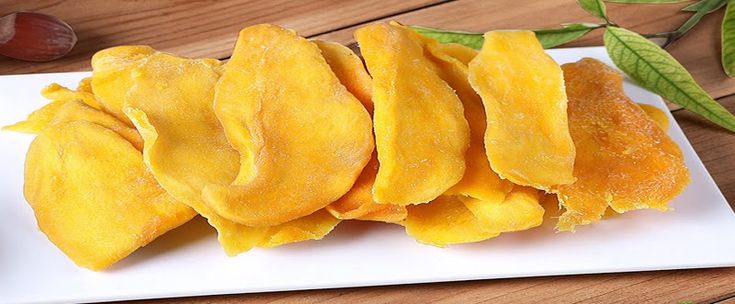
(Dried mango slices contain potassium, a mineral that helps regulate fluid balance, muscle function and blood pressure)
How to Incorporate Dried Mango Slices Into Your Diet
Dried mango slices are a flexible snack and may be enjoyed in a whole lot of approaches:
- On Their Own: Enjoy dried mango slices as a quick and healthy snack for power enhancement all through the day.
- In Trail Mix: Combine dried mango slices with nuts, seeds, and other dried culminations for a fulfilling and nutrient-packed path mix.
- In Smoothies: Rehydrate dried mango slices by soaking them in water or fruit juice, then combine them right into a smoothie for sweetness and nutrition.
- In Baked Goods: Add chopped dried mango slices to cakes, cookies, or granola bars for a tropical flavor and an extra dose of nutrients.
- In Salads: Rehydrate dried mango slices and add them to salads for a hint of sweetness and texture. They pair nicely with leafy vegetables, avocado, and nuts.
- In Yogurt: Stir dried mango slices into yogurt for a delicious, nutrition-rich snack or breakfast.
Choosing the Right Dried Mango Slices
When purchasing dried mango slices, make sure to study the label cautiously. Look for unsweetened sorts that include the handiest mango, with no introduced sugars or preservatives. Some brands add sulfur dioxide to keep color and freshness, so in case you’re sensitive to sulfites, pick out brands that do not use this additive.
Opting for organic dried mango slices is another appropriate choice to make certain the fruit is free of pesticides and other chemical compounds.
Conclusion
Dried mango slices are a nutrient-dense, convenient snack that provides a lot of health benefits, such as boosting immunity, assisting digestive fitness, and selling healthful pores and skin. With their excessive tiers of vitamins A and C, antioxidants, and fiber, they make for a really perfect on-the-pass snack or addition to recipes. However, it’s vital to select unsweetened and additive-loose options for maximum fitness blessings. Whether you experience them as a snack or contain them in food, dried mango slices offer a tropical, nutritious enhancement for your weight loss program.
